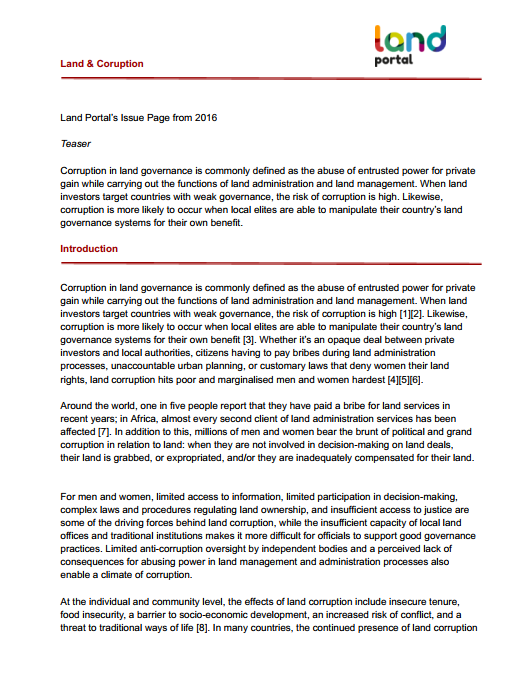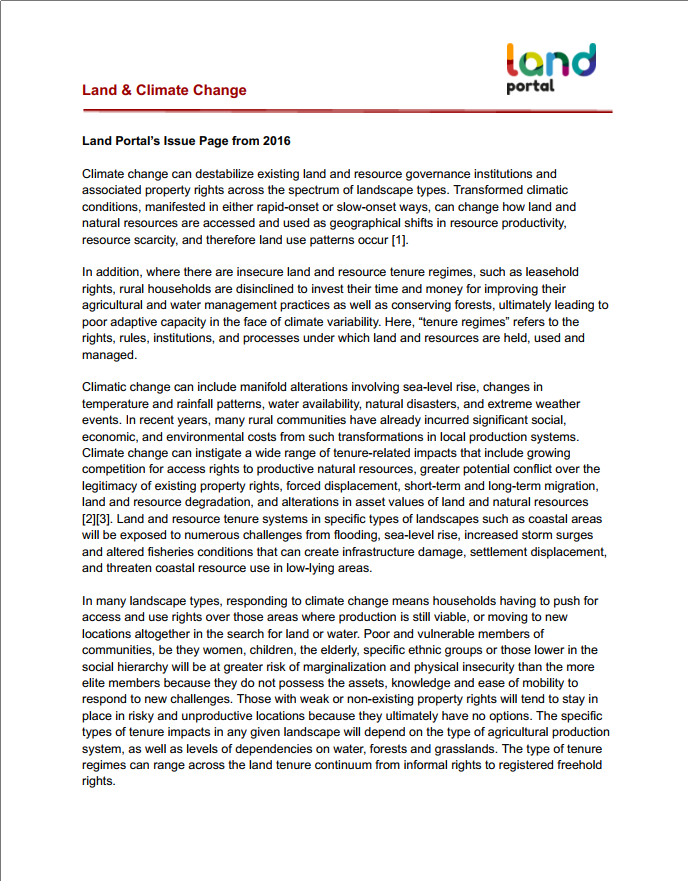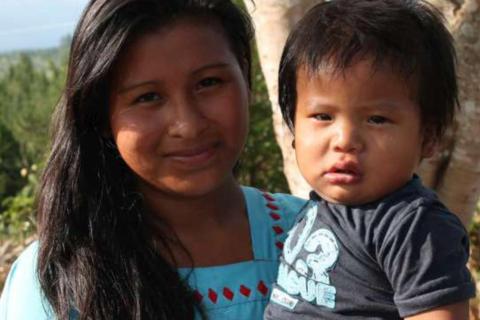
Topics and Regions
Landpages.co.ke is a medium of passing this message.
Details
Public Email
Location
Contributions
Displaying 191 - 200 of 740How to Understand and Address Land Conflicts
This guide aims to help communities, to understand and address land-investment based conflicts thus supporting them in exercising their basic human rights.
Safeguarding Land Tenure Rights in the Context of Responsible Governance of Investments in Uganda
This manual is intended to provide an overview of the land tenure rights to both the investment affected communities and the investors to ensure that all the different rights on land are recognized and considered.
Gender Transformative Land Acquisition
This guide addresses the capacity needs required to enable gender-responsive land acquisition in Uganda. It is primarily aimed at Communities, Civil Society Organisations and Investors, but can also be used by central and district Government at technical and decision-taking level.
Land & Gender
From large land acquisitions that displace communities without due compensation, to the encroachment of mining on indigenous lands, to the brunt of climate change and natural disasters, to everyday land and property deprivation by kin or state, women are typically more harshly impacted by land tenure insecurity due to discriminatory laws and lingering social bias
Land and Corruption
Corruption in land governance is commonly defined as the abuse of entrusted power for private gain while carrying out the functions of land administration and land management. When land investors target countries with weak governance, the risk of corruption is high. Likewise, corruption is more likely to occur when local elites are able to manipulate their country’s land governance systems for their own benefit
Land and Climate
Climate change can destabilize existing land and resource governance institutions and associated property rights across the spectrum of landscape types. Transformed climatic conditions, manifested in either rapid-onset or slow-onset ways, can change how land and natural resources are accessed and used as geographical shifts in resource productivity, resource scarcity, and therefore land use patterns occur [1].
Land and Investment
Investing in land, and in activities requiring land, occurs around the world. As a broad category, “land and investments” encompasses a wide range of scenarios: investments may be small or large in terms of the amount of money invested and scale of the land acquired. Investments may be undertaken for activities ranging from agriculture or forestry to infrastructure, extractive projects, renewable energy, or even tourism; and may involve a variety of actors, such as local smallholders, national governments, local investors, or foreign corporations, among others.
Sustainable Land Governance for Water–Energy–Food Systems: A Framework for Rural and Peri-Urban Revitalisation
This research paper addresses the need for an adaptable theoretical framework in the context of sustainable land governance for Water–Energy–Food (WEF) systems, bridging the gap between international guidelines and contextual realities. The novel framework is useful to effectively tackle the intricate challenges of rural and peri-urban revitalisation in the Global South by providing a holistic approach that considers the multi-dimensional interactions of land with water, energy, and food systems.
La conservación de los bosques de Costa Rica genera beneficios
Costa Rica es ampliamente reconocido por ser un líder mundial debido a sus logros ambientales, entre los cuales cabe destacar sus buenos resultados en la conservación de los bosques. Es el primer país tropical del mundo que ha revertido la deforestación.










